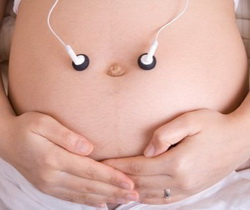Fertility and estrogen are inseparable and having the right estrogen levels IVF is very crucial in the IVF process.

In an IVF process, a woman's ovary is stimulated with fertility drugs to produce multiple eggs resulting to higher estrogen levels IVF. However, some factors also influence estrogen levels like food, ethnic connections and environmental toxins present in the woman's body. Nonetheless, estrogen levels are closely monitored during the IVF process to help doctors figure out the response of a woman's ovary to fertility drugs. In addition, estrogen levels IVF help in gauging the risk of possible complications and high level of estrogen is a strong signal.
How are Estrogen and IVF Related?
Estrogen is a compound female reproductive hormone which plays an important role in the menstrual cycle and fertility. Its production in a woman's body is strictly controlled by luteinizing hormone (LH) and a few nanogram variation from the required amount can cause infertility. During regular menstrual cycles, only one egg is released by the ovary for fertilization and estrogen levels are normally high several days before ovulation and then drop during ovulation. In an IVF process, ovaries are stimulated to make more eggs causing an increase in the patient's estrogen levels. The estrogen levels of an IVF patient is very important as doctors use them to figure out the ovarian response and make certain adjustments on the dosage of stimulation drugs. In addition, doctors administer additional estrogen either in the form of fertility drugs or patch to support the development of the endometrium before IVF embryo transfer.
How is Estrogen Levels IVF Monitored?
One form of estrogen that is closely monitored in IVF process is estradiol or E2 by means of periodic blood test. There is no such preset value with regards to the normal level of estradiol in the IVF process because it varies from one patient to another depending on the fertility medicine being used and the patient's age. Doctors have their respective evaluation process of estrogen levels, but an increase of around 50% on estrogen levels daily is expected. Aside from monitoring the estrogen levels, the fertility doctor will also conduct an ultrasound to measure the size of the follicles to help him or her determine the time for IVF egg retrieval procedure.
What are the Risks of High Estrogen Levels IVF?
If the estrogen level is high during IVF, the woman is at risk of developing OHSS (Ovarian Hyper Stimulation Syndrome). This IVF complication will most likely happen after the HCG shot administration to stimulate final maturity of developing eggs. Upon the release of eggs from the ovary, huge amounts of cytokines, progesterone and estrogen are also released which may cause the capillaries to be more porous. Likewise, this may lead to huge amounts of fluid to move out of the veins and into the lungs or abdomen. To prevent this from happening, rest is very important during the IVF cycle up until the pregnancy test. In addition, avoidance of doing extensive exercises or other rigorous physical activities and giving more time to lying down or sitting is advised.
Monitoring and maintaining the right estrogen levels IVF is an important aspect in the IVF process.
